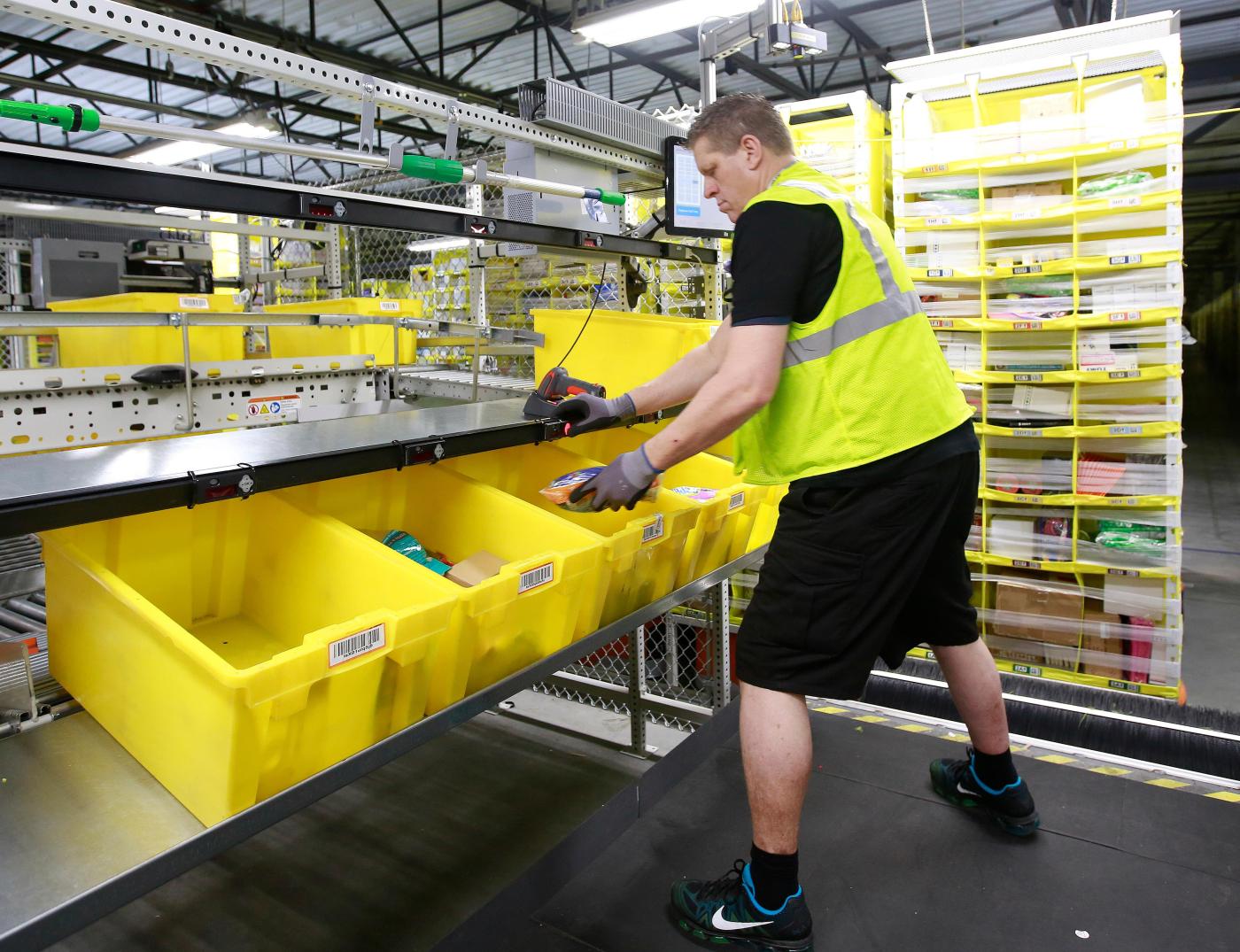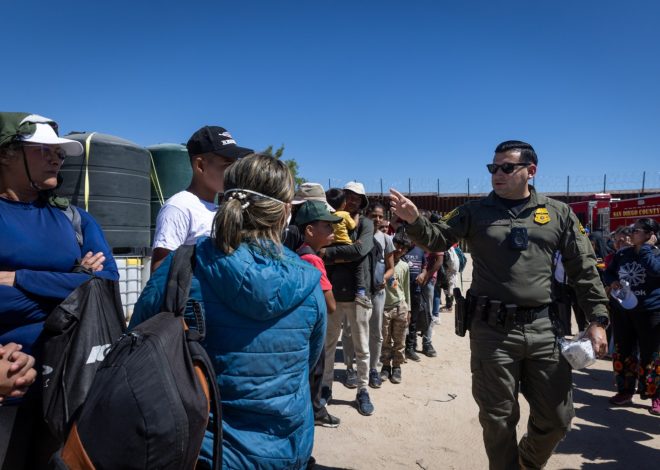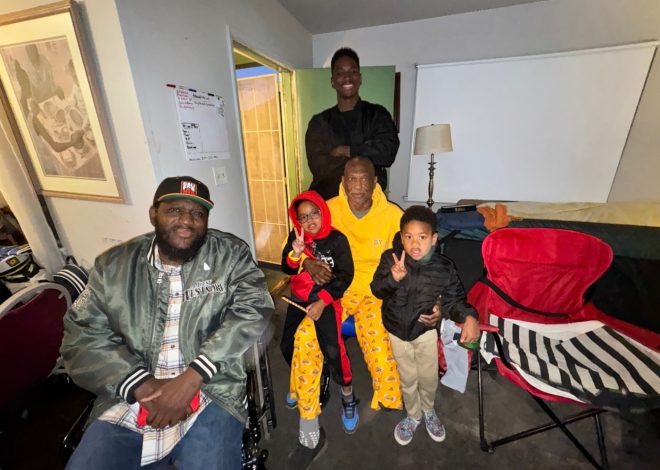
Stockman: Warehouse workers don’t mobilize like blue-collar predecessors
No place symbolizes the profound shifts that have taken place in the U.S. economy like Bethlehem, Penn., a city that lost its mighty steel mill but has been reborn with the help of a casino, a hotel and a couple of Walmart distribution centers.
Thanks to the rise of online shopping and the proximity to so many U.S. doorsteps, warehouses have become a major source of blue-collar employment in Bethlehem and beyond. In Pennsylvania’s Lehigh Valley, more than 19,000 people work in the warehouses that prepare our packages. Thousands more drive the trucks that deliver them. The total number of workers in this industry almost replaces the number that Bethlehem Steel employed in the city during its heyday.
But the political power that blue-collar workers once wielded has not been replaced.
Despite their large numbers, their importance to the economy, and their presence in Northampton — a swing county in a crucial battleground state — warehouse workers don’t form an influential voting bloc in the way that steelworkers did. During an election year, when voters in this county and in the broader Lehigh Valley could well determine who sits in the White House, elected officials are scratching their heads about how to engage them.
“It’s really hard to reach out to these folks,” Lamont McClure, the Northampton County executive, told me.
Communal acts
It turns out that making stuff isn’t the same as distributing it. Working in a steel mill is a communal act that lends itself to the pursuit of political power in a way that warehouse jobs do not. Steelworkers toiled alongside one another, forming lifelong bonds, bowling leagues and unions that delivered a reliable voting bloc. Back when thousands of workers streamed out of the gates of Bethlehem Steel at quitting time, “politicians would come out to shake our hands,” Jerry Green, retired president of United Steelworkers Local 2599, told me.
Factories were so good at political mobilization, in fact, that some credit them for democracy itself. Women and working-class men won the right to vote in the United States, Western Europe and much of East Asia after about a quarter of those populations were employed in factories, according to recent research by Sam van Noort, a lecturer at Princeton.
Warehouses, by contrast, have no such mystique. Nobody campaigns outside the Walmart distribution centers here. Workers tend to be hired by staffing agencies and many stay for only a few months. They work on their own and rarely socialize. They are notoriously difficult to organize. Alec MacGillis, author of “Fulfillment: America in the Shadow of Amazon,” told me that the biggest challenge for labor organizers at Amazon warehouses was getting workers to stay on the job long enough to feel a sense of solidarity.
Malenie Tapia, who moved to Bethlehem from Queens, New York, five years ago and took a job as a “picker” in a Zara warehouse, explained why. For eight hours a day, she grabbed items off numbered shelves and delivered them to packers who packed them into boxes. Talking to co-workers was forbidden, she said, except during a brief lunch break. “Sometimes I would go to the section in the back, where there would be less eyes on you, and sneak in a little moment of conversation,” she said.
Her three supervisors, all of whom were Spanish-speaking Latinos like her, used to write down how fast she worked on a whiteboard. If she worked fast enough, they told her, she might one day become a “lead” like them. But she didn’t want that. Older people — those without legal residency status or who had spotty employment histories — clung to those jobs, she said. But young people saw that work as temporary, nothing to base a life on.
She left the warehouse and eventually got her dream job, teaching English as a second language at Northampton Community College. About half of her students work in warehouses. So does her mother, a Mexican immigrant who walked across the border at age 15 and now works in a warehouse by day and manages her own small restaurant by night. While they are constantly bombarded by ads on the radio at the restaurant, no one from the Donald Trump or Kamala Harris campaign has reached out to ask for her vote, Tapia told me. She remains undecided.
“In terms of being a woman, the most obvious choice would be Kamala,” she said. “But in terms of how I feel politically, a lot of my friends and people my age feel like they can’t trust anybody.” She went on: “Young people don’t even want to vote because they feel like their vote doesn’t matter.”
Untapped influence
It’s ironic. Northampton County is one of the few places in America where every vote absolutely matters.
But no one seems to have cracked the code of how to talk to warehouse workers as workers. Republicans try to engage them as Christians. Conservative pastors who support Trump have begun to preach at Latino-majority evangelical churches, according to Guillermo Lopez Jr., a former millwright at Bethlehem Steel who is now a civic leader. A lifelong resident whose father was recruited from Puerto Rico in the 1950s to work in the steel mill, Lopez said that many Latino workers today don’t take their political cues from union halls but rather from God. “For almost every 100 Latinos, there is an evangelical pastor and church,” he said. He’s a Democrat who supports Harris, but he thinks Republicans are getting traction among Pennsylvania’s Latinos through churches.
Related Articles
Tim Walz, wife and son vote early in Minnesota
Harris to give her campaign’s closing argument at the Ellipse, where Trump helped spark Capitol riot
In swing states and beyond, ‘War Game’ sounds a warning
5 times when Donald Trump changed his stance on an issue
5 times when Kamala Harris changed her stance on an issue
Democrats, on the other hand, reach out to these voters as Latinos. Roughly a third of all warehouse workers in the area are of Hispanic descent. The Harris campaign opened an office in Allentown, a majority-Latino city near Bethlehem, and hired a Spanish-speaking press secretary for the state. It’s doing bilingual canvassing and has “invested more in paid Hispanic media in the state than any previous campaign,” according to Lauren Hitt, a Harris campaign spokesperson.
The hot political issue around warehouses isn’t the workers at all; it’s the traffic and loss of green space associated with them. Both the Democratic and Republican candidates in the race for a state representative seat in Northampton have vowed to stop the proliferation of warehouses, which some citizens’ groups say destroys their rural way of life. If warehouse workers had a political voice, they might push back. But they don’t, so they won’t. Warehouses have been an economic boon. But politically, for workers, they are a loss.
Farah Stockman is a member of the New York Times editorial board.


